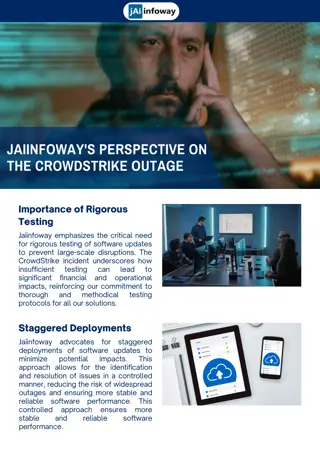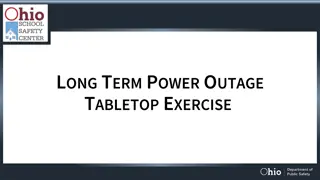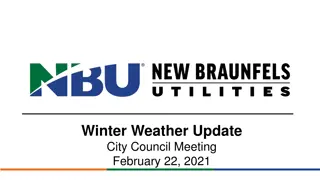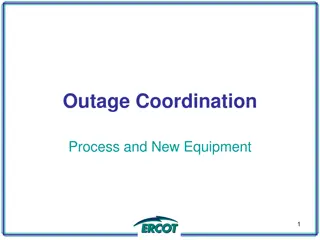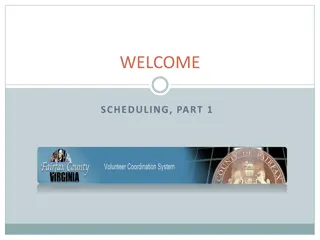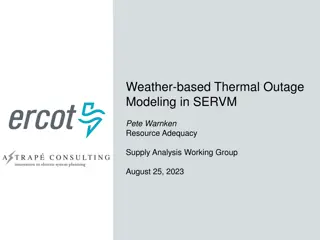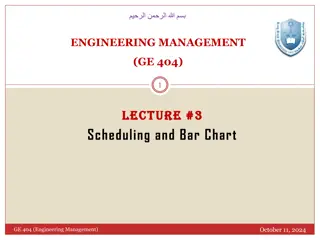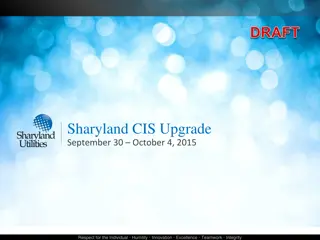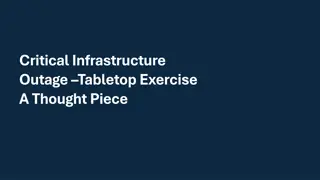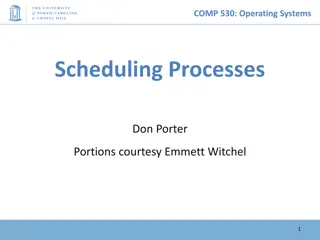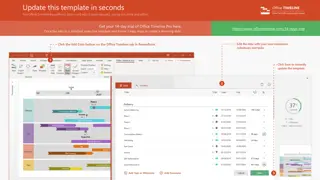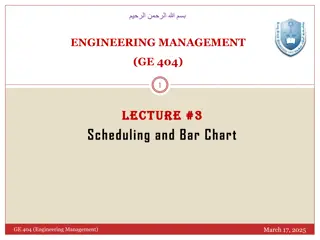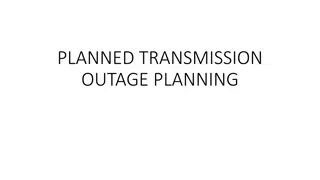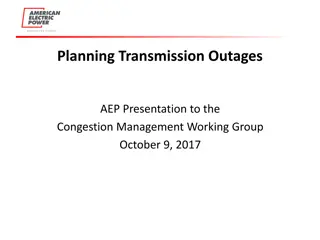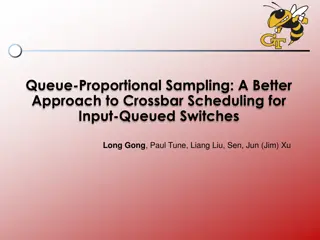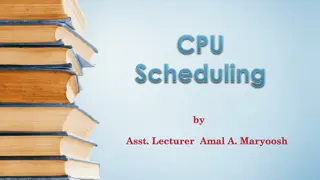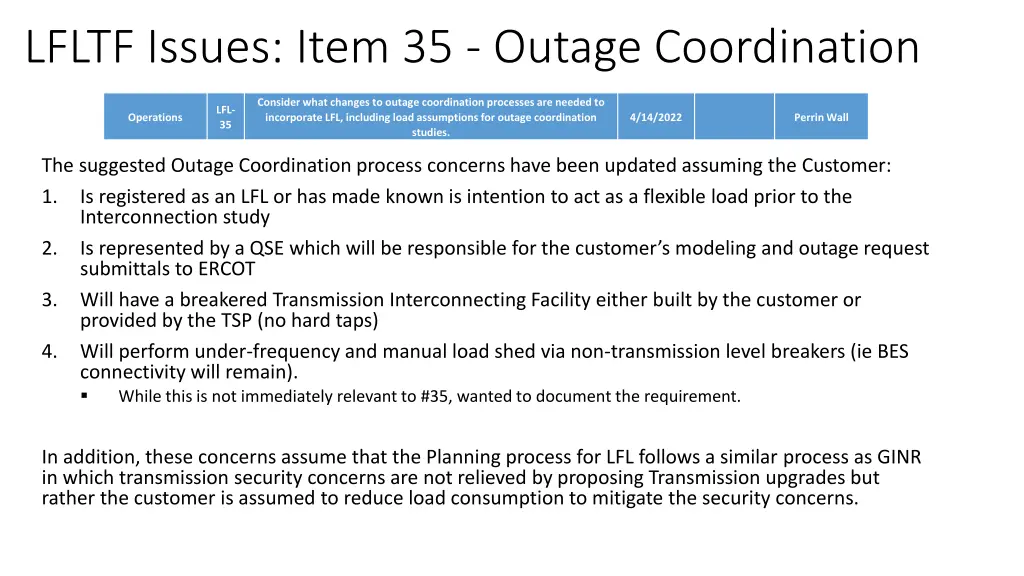
Incorporating Load Flexibility in Outage Coordination Processes
Explore the necessary changes in outage coordination processes to accommodate Load-Flexible Loads (LFL) including load assumptions for outage coordination studies. Addressing issues related to outage restrictions, congestion concerns, and transparency in assumptions made for outage coordination studies.
Download Presentation

Please find below an Image/Link to download the presentation.
The content on the website is provided AS IS for your information and personal use only. It may not be sold, licensed, or shared on other websites without obtaining consent from the author. If you encounter any issues during the download, it is possible that the publisher has removed the file from their server.
You are allowed to download the files provided on this website for personal or commercial use, subject to the condition that they are used lawfully. All files are the property of their respective owners.
The content on the website is provided AS IS for your information and personal use only. It may not be sold, licensed, or shared on other websites without obtaining consent from the author.
E N D
Presentation Transcript
LFLTF Issues: Item 35 - Outage Coordination Consider what changes to outage coordination processes are needed to incorporate LFL, including load assumptions for outage coordination studies. LFL- 35 Operations 4/14/2022 Perrin Wall The suggested Outage Coordination process concerns have been updated assuming the Customer: 1. Is registered as an LFL or has made known is intention to act as a flexible load prior to the Interconnection study 2. Is represented by a QSE which will be responsible for the customer s modeling and outage request submittals to ERCOT 3. Will have a breakered Transmission Interconnecting Facility either built by the customer or provided by the TSP (no hard taps) 4. Will perform under-frequency and manual load shed via non-transmission level breakers (ie BES connectivity will remain). While this is not immediately relevant to #35, wanted to document the requirement. In addition, these concerns assume that the Planning process for LFL follows a similar process as GINR in which transmission security concerns are not relieved by proposing Transmission upgrades but rather the customer is assumed to reduce load consumption to mitigate the security concerns.
LFLTF Issues: Item 35 - Outage Coordination Summer Outage restriction applicability to LFL interconnection TSPs are limited to taking outages during non-Summer months (October April) Current discussions at LFLTF are to allow abridged interconnection time frames in exchange for making the interconnected load flexible Given the condensed interconnection schedule being requested by LFLs, ERCOT must decide whether exceptions will be made for LFL interconnection during Summer Restriction period as it currently does for most Generation interconnections If exceptions are not given, the abridged interconnection advantage may not be achievable
LFLTF Issues: Item 35 - Outage Coordination Congestion concerns If the Planning process does not make transmission upgrades based on load flexibility (as is currently the case for generation), there is a high probability full load requested to be interconnected may not be achievable. Worse yet, load capable of being served during maintenance outages will be even smaller. Will Customer be required to come completely offline to allow maintenance outage? If not, then ability to serve at least some of the load must be planned for.
LFLTF Issues: Item 35 - Outage Coordination Concerns with assumptions made for Outage Coordination Studies Currently, there is lack of transparency regarding the assumptions made for Outage Coordination Studies. Nodal Protocol Section 3.1.5.11 Evaluation of Transmission Facilities Planned Outage or Maintenance Outage Requests shows the different factors that are to be considered for the Outage Coordination case, but once the case is built there are little to no modifications that can be made to allow a Transmission Outage to move forward. For example, even though generation is dispatchable and RUC-able, Transmission Outages are often rejected based on the dispatch assumption made in the case, not only for Resource Entities but also for Private User Networks with very variable net injection/consumption
LFLTF Issues: Item 35 - Outage Coordination Concerns with assumptions made for Outage Coordination Studies Although not documented, it appears the Outage Scheduling case is based on conditions during the same time period the previous year. If a hot spell or something unusual happened during that time frame, the case may have an unusual dispatch in which a generator that doesn t typically run off-peak is running. Therefore, the outage is rejected and recommended to be rescheduled at a different time. Another concern is that Outage Scheduling studies will not calculate shift factors for generators assumed to be offline (not due to a Resource Outage request but because of the assumed dispatch). Therefore, TSPs must often wait until a new Outage Scheduling case is released to re-submit the outage.
LFLTF Issues: Item 35 - Outage Coordination Concerns with assumptions made for Outage Coordination Studies Will ERCOT give priority to Transmission Maintenance outage requests over LFL load? ie will ERCOT be willing to scale down LFL load in order to allow a Transmission Maintenance outage to proceed or will they hesitate to do so as is currently the case with Generator dispatch? Will the Outage Scheduling process have a way to determine loads that are flexible within the case so they know to scale down?

